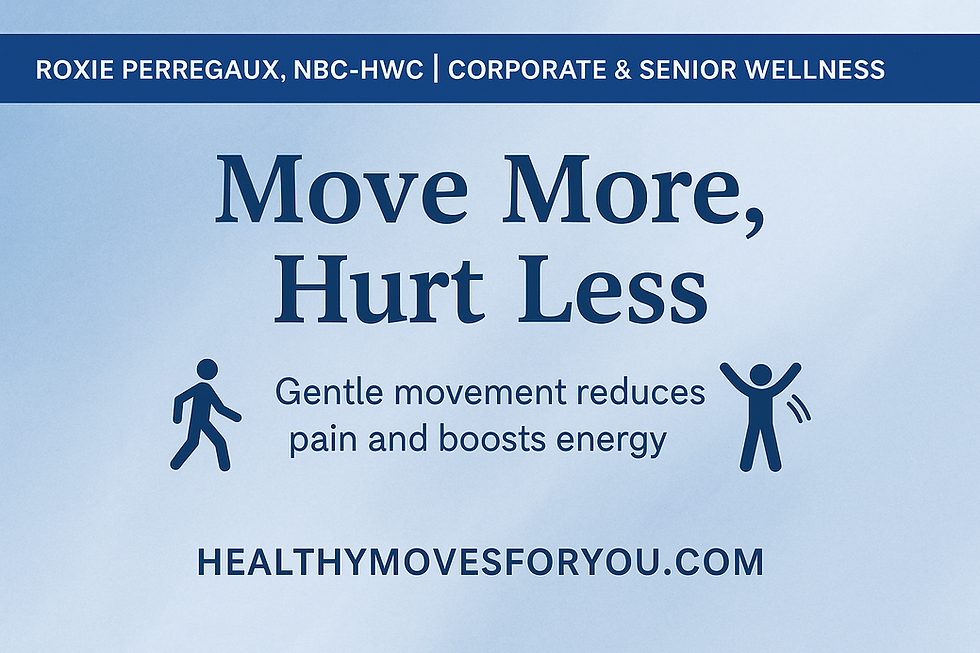🧠 Brain Fog in the Workplace: Why It Happens and What You Can Do About It
- Roxie Perregaux

- Aug 8, 2025
- 2 min read

We all have days when we feel a little “off.” But if that mental haze becomes your new normal, it’s more than just a bad day—it could be brain fog.
Brain fog isn’t a medical diagnosis, but it’s a common experience among professionals, especially those over 45. It’s that sense of thinking more slowly, forgetting small details, or struggling to focus—even when you’re doing your best to stay on top of things.
In the workplace, brain fog doesn’t just affect you—it can affect your team’s productivity, communication, and morale.
What Exactly Is Brain Fog?
Brain fog can look like:
Trouble focusing on tasks
Forgetting what you were about to say
Re-reading the same sentence several times
Feeling mentally sluggish, even after a “good” night’s sleep
It’s not burnout.It’s not dementia.It’s not “just getting older.”It’s a sign that something in your body or routine needs attention.
Common Causes of Brain Fog
Research (including a great summary from AARP) shows that brain fog can be linked to several factors, many of which are treatable:
Poor sleep or undiagnosed sleep apnea
Hormonal shifts (yes, perimenopause can impact focus at work)
Chronic inflammation (arthritis, autoimmune conditions, or even long COVID)
Nutrient deficiencies (especially B12, vitamin D, and iron)
Dehydration
Medications with cognitive side effects
Mental health concerns such as anxiety, depression, or prolonged stress
Why Brain Fog Matters at Work
When your mind feels like it’s “moving through molasses,” it’s harder to:
Complete complex tasks
Stay engaged in meetings
Make confident decisions
Communicate clearly with coworkers
It doesn’t always appear as an obvious performance problem. Sometimes, it shows up as someone being unusually quiet in meetings, missing small deadlines, or saying, “I just don’t feel sharp anymore.”
Steps to Clear the Fog
Brain fog isn’t always an easy fix—but small, consistent steps can make a big difference:
Improve sleep quality and address sleep disorders
Stay hydrated throughout the day
Eat nutrient-dense meals and snacks
Add short movement breaks into your workday
Use stress management techniques like deep breathing or mindfulness
Final Thought
If brain fog is affecting your work—or your team’s performance—it’s worth exploring the cause. Often, the solution is easier than you think.
I help professionals and organizations address the root causes of brain fog through workshops, coaching, and simple, sustainable wellness strategies.
📩 Contact me to learn how we can bring more clarity, energy, and focus to your workplace.




Comments